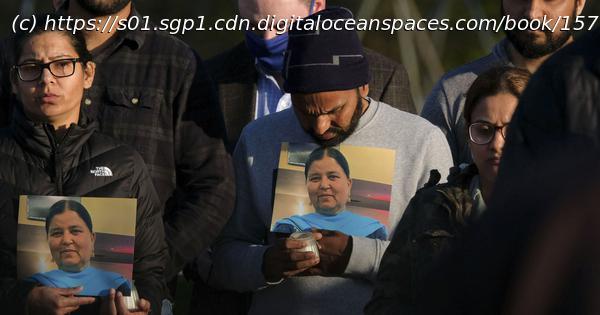There is little understanding in the US of who exactly Sikhs are and what they believe.
On April 16, a gunman opened fire at a FedEx facility in Indianapolis killing eight people and injuring several others before taking his own life. Four members of the Sikh community were among those gunned down. The site was reported as having a significant number of Sikh employees, and the massacre has left the community shaken and in grief. “I have sat with families from our community and so many others at the Holiday Inn Express as they wait to hear the fates of their loved ones,” said Maninder Singh Walia, a member of the Indianapolis Sikh community. “These kinds of violent attacks are a threat to all of us. Our community has a long road of healing – physically, mentally, and spiritually – to recover from this tragedy.” The shooter’s motive is not yet known. In a statement following the incident, the Sikh Coalition, an advocacy group, called on authorities to conduct a full investigation “including the possibility of bias as a factor”. Sikhs have in the past been targeted in racist attacks. As a scholar of the tradition and a practising Sikh myself, I have studied the prejudices and barriers that many Sikhs in America face. I have also experienced racial slurs from a young age. The bottom line is there is little understanding in the United States of who exactly the Sikhs are and what they believe. So here is a primer. To start at the beginning, the founder of the Sikh tradition, Guru Nanak, was born in 1469 in the Punjab region of South Asia, which is currently split between Pakistan and the northwestern area of India. A majority of the global Sikh population still resides in Punjab on the Indian side of the border. From a young age, Guru Nanak was disillusioned by the social inequities and religious hypocrisies he observed around him. He believed that a single divine force created the entire world and resided within it. In his belief, God was not separate from the world and watching from a distance, but fully present in every aspect of creation. He, therefore, asserted that all people are equally divine and deserve to be treated as such.
Home
United States
USA — Science America’s long-misunderstood Sikh minority is mourning the deaths in Indianapolis mass shooting






